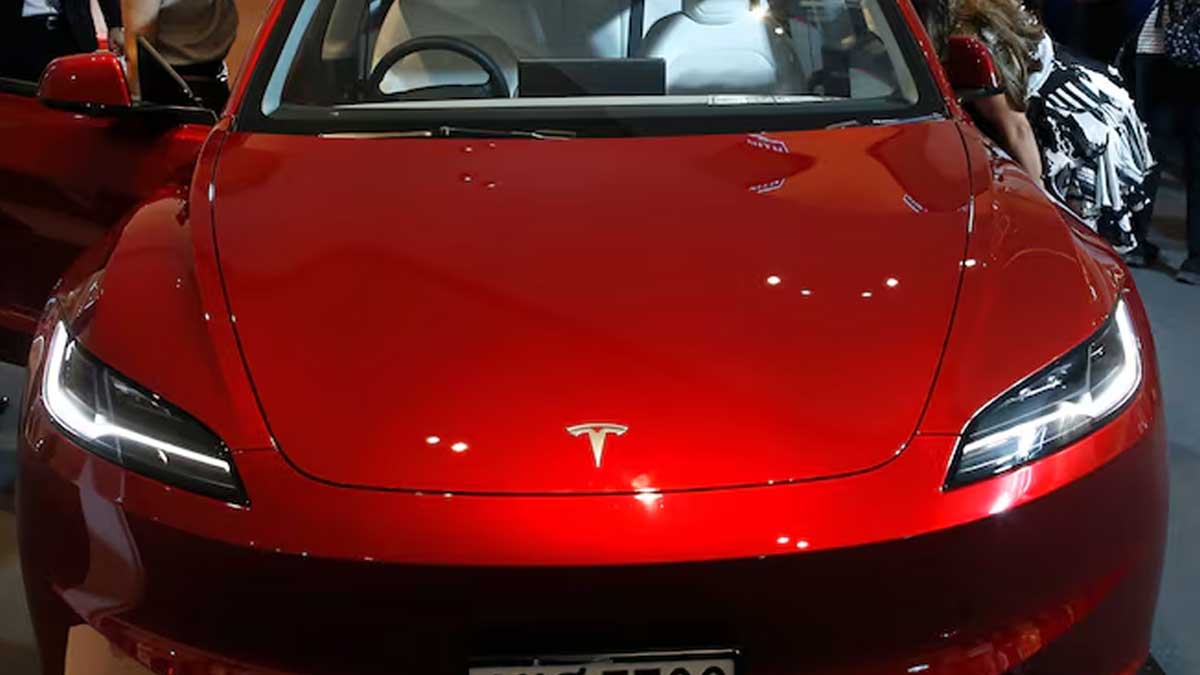- Home
- Billionaires
- Investing Newsletters
- 193CC 1000
- Article Layout 2
- Article Layout 3
- Article Layout 4
- Article Layout 5
- Article Layout 6
- Article Layout 7
- Article Layout 8
- Article Layout 9
- Article Layout 10
- Article Layout 11
- Article Layout 12
- Article Layout 13
- Article Layout 14
- Article Sidebar
- Post Format
- pages
- Archive Layouts
- Post Gallery
- Post Video Background
- Post Review
- Sponsored Post
- Leadership
- Business
- Money
- Small Business
- Innovation
- Shop
Recent Posts
Tesla Reports Fourth Consecutive Profit Drop Despite Higher Sales

Tesla’s stock experienced a decline following the release of its earnings report on Tuesday afternoon, despite the company surpassing sales expectations. The electric vehicle (EV) manufacturer continues to face a prolonged profit downturn that is significantly affecting its market valuation. For the second quarter, Tesla reported earnings per share (EPS) of $0.52, falling short of the consensus analyst forecast of $0.61. This EPS figure represents a substantial 43% decrease from the $0.91 EPS reported for the same period in 2023. It also marks the fourth consecutive quarter of negative profit growth for Tesla, highlighting an ongoing trend of diminishing profitability for the company. Despite the revenue of $25.5 billion exceeding analysts’ expectations of $24.5 billion and showing a 2% increase compared to the previous year, it was insufficient to offset the impact of declining earnings. Consequently, Tesla’s stock, known for its volatility, dropped approximately 3% following the mixed earnings release, reflecting investor concerns about the sustainability of Tesla’s profit growth.
Earlier in the month, Tesla had announced that it delivered 444,000 vehicles during the second quarter. Although this figure represents a 5% decrease from the 466,000 vehicles delivered in Q2 2023, it surpassed analysts’ forecasts and marked a more moderate decline compared to the 9% year-over-year drop recorded in the first quarter of 2024. This positive news about vehicle deliveries initially boosted Tesla’s stock, which saw a 7% increase over the three weeks between the delivery announcement and the earnings report. This uptick in stock price helped to reverse a 16% decline observed earlier in the year, leading to a near-flat return. Nevertheless, Tesla’s shares, closing just below $250 at the end of Tuesday’s trading, remain significantly down—almost 40%—from their peak of over $400 in late 2021. This drop contrasts sharply with the S&P 500 index’s 22% gain over the same period, reflecting the challenges Tesla faces in regaining its previous valuation heights. Despite these financial struggles, Tesla CEO Elon Musk, who holds a 13% stake in the company, continues to be the wealthiest individual globally, with an estimated net worth of $250 billion.
Tesla’s adjusted EPS for the first half of 2024 is more than 40% lower than the same period in 2023. This considerable decline is largely due to a combination of fewer vehicle deliveries and a global reduction in prices, driven by intensified competition within the electric vehicle market. The increased presence of rival companies and the push for more affordable EVs have put additional pressure on Tesla’s pricing strategy and overall profitability. As competition in the EV sector continues to escalate, Tesla faces significant challenges in maintaining its market share and achieving profitable growth.
Looking forward, the primary concern for Tesla is whether it can return to a growth trajectory following four consecutive quarters of year-over-year earnings declines. Analysts are cautiously optimistic, with forecasts suggesting that Tesla could achieve positive EPS growth by the fourth quarter of 2024. However, they do not anticipate the company will surpass its record profit levels achieved in 2022 until at least 2026. This projection indicates a prolonged period of financial recovery and stabilization, with Tesla needing to address various operational and market challenges to regain its profitability.
In a broader context, Tesla’s involvement with political figures has added another layer of complexity to its narrative. CEO Elon Musk, who also owns the social media platform X, has recently endorsed Republican presidential candidate Donald Trump. Musk’s endorsement and his reported plans to donate $45 million monthly to groups supporting Trump have generated significant attention. This move is somewhat surprising given Trump’s previous criticisms of electric vehicles and personal jabs at both Musk and Tesla. Nonetheless, some analysts believe that a Trump presidency could ultimately benefit Tesla. They argue that even if Trump were to eliminate EV tax credits, which currently stimulate demand, his administration’s potential tariffs on Chinese imports could hinder cheaper EV competitors like BYD and NIO from entering the U.S. market. This protectionist stance might inadvertently create a more favorable competitive environment for Tesla, despite the ongoing challenges in its financial performance.
Recent Posts
Categories
- 193 Countries Consortium Partner1
- 193cc Digital Assets2
- 5G1
- Aerospace & Defense48
- AI37
- Arts3
- Banking & Insurance11
- Big Data3
- Billionaires1,467
- Boats & Planes1
- Business332
- Careers13
- Cars & Bikes79
- CEO Network1
- CFO Network17
- CHRO Network1
- CIO Network1
- Cloud10
- CMO Network18
- Commercial Real Estate7
- Consultant1
- Consumer Tech194
- CxO1
- Cybersecurity73
- Dining1
- Diversity, Equity & Inclusion4
- Education7
- Energy8
- Enterprise Tech29
- Events11
- Fintech1
- Food & Drink2
- Franchises1
- Freelance1
- Future Of Work2
- Games149
- GIG1
- Healthcare79
- Hollywood & Entertainment203
- Houses1
- India’s 1000 Richest1
- Innovation46
- Investing2
- Investing Newsletters4
- Leadership65
- Lifestyle11
- Manufacturing1
- Markets20
- Media327
- Mobile phone1
- Money13
- Personal Finance2
- Policy569
- Real Estate1
- Research6
- Retail1
- Retirement1
- Small Business1
- SportsMoney42
- Style & Beauty1
- Success Income1
- Taxes2
- Travel10
- Uncategorized14
- Vices1
- Watches & Jewelry2
- world's billionaires1,436
- Worlds Richest Self-Made Women2
Related Articles
HBO and Cablevision Founder Charles Dolan Dies at 98
Charles Dolan, the visionary founder of HBO and Cablevision, passed away at...
By 193cc Agency CouncilDecember 30, 2024Bitcoin Reaches $100K, But Altcoins Outperform in 2024
Bitcoin’s performance in 2024 was nothing short of historic, as it crossed...
By 193cc Agency CouncilDecember 28, 2024Apple Unveils Limited-Edition Year of the Snake AirTag in Japan
In an announcement that will likely leave Apple enthusiasts excited but also...
By 193cc Agency CouncilDecember 27, 2024Mega Millions Jackpot Hits $1.15B; Winner Faces Major Taxes
The Mega Millions jackpot has soared to an estimated $1.15 billion, following...
By 193cc Agency CouncilDecember 26, 2024















Leave a comment